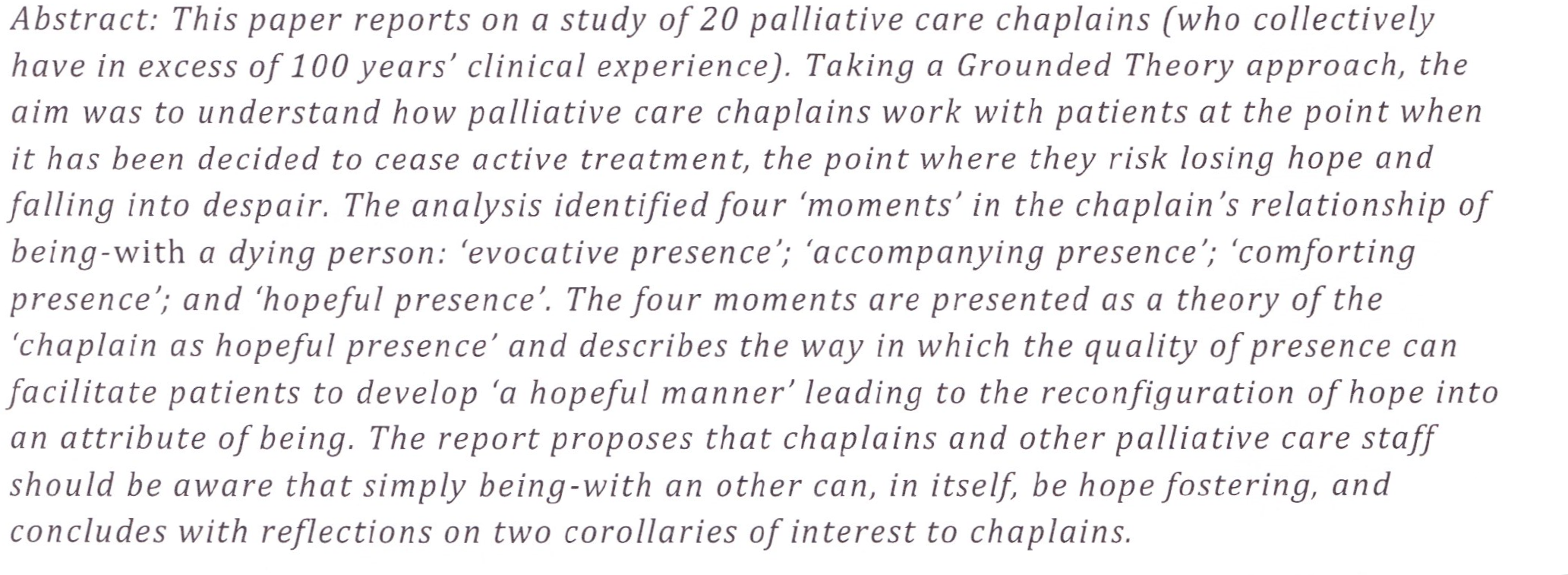Chaplains, presence and hope beyond recovery
DOI:
https://doi.org/10.1558/hscc.21331Keywords:
chaplain, Grounded Theory, hope, palliative care, presence, being-withAbstract

Published
2013-04-24
Issue
Section
Articles
How to Cite
Nolan, S. (2013). Chaplains, presence and hope beyond recovery. Health and Social Care Chaplaincy, 14(2), 12-16. https://doi.org/10.1558/hscc.21331




